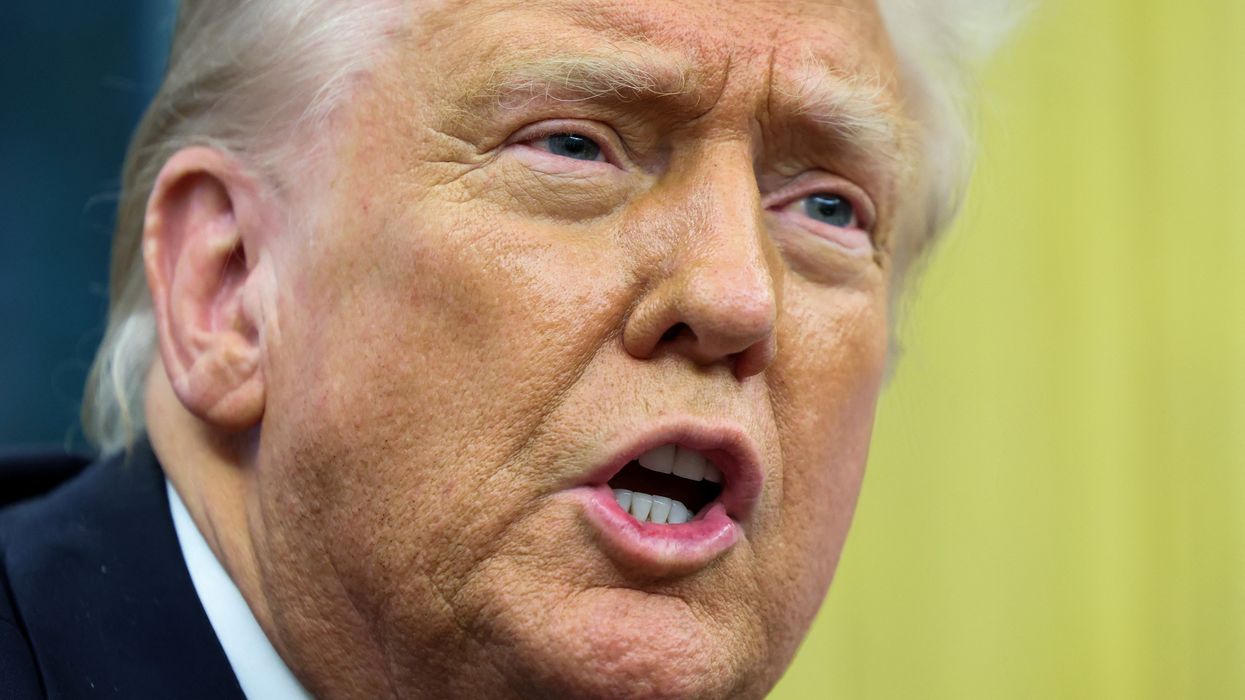There are the three different ways in which Trump has the upper hand legally as he fulfills his promise to go after his enemies, law professor Kimberly Wehle argues in a piece published Monday at Politico.
Wehle, a professor of law at the University of Baltimore and a POLITICO Magazine contributing writer, writes that Trump has not tried to hide his plan to use the justice system for his own political motives.
“Already, Trump has made clear that he is willing to use the justice system to reward his allies and prosecute his enemies,” she writes. “He has pardoned upwards of 1,500 people convicted for their roles in the Jan. 6, 2021 insurrection, and fired over a dozen Justice Department officials involved in former Special Counsel Jack Smith’s cases against him.”
“Here are three ways the law is stacked against anyone who comes into Trump’s legal crosshairs,” Wehle adds.
READ MORE: 'Threat to US democracy': Legal experts detail 'radical motives' behind Trump’s mass firings
The first is the limits of pardons. Wehle brought up former Rep. Liz Cheney (R-Wyo.) as an example. Biden pardoned Cheney preemptively for offenses related to the investigation of the Jan. 6 attack on the Capitol, meaning she could get an indictment related to the investigation dismissed. But she would not be protected from subpoenas. She could also be subject to criminal investigations into her tax history and banking transactions. Trump could even unlawfully detain her, given that the Supreme Court gave him immunity.
“If Trump carries through by prosecuting Cheney for something unrelated to the Jan. 6 committee,” Wehle writes, “the current state of the law offers two routes for her to claim selective, malicious or vindictive prosecution: mounting a defense to a criminal prosecution or filing a separate civil lawsuit. Neither is easy.”
The next way the law is on Trump’s side is selective prosecution defense. Defendants are guaranteed equal protection, so if a judge files charges based on race, religion, or political beliefs, for example, the charges could be tossed out.
READ MORE: Biden-to-Trump voters 'mostly like what they see' — except for this one issue
“But that line of defense faces significant hurdles,” Wehle writes.
The Supreme Court argues that if the prosecutor has probable cause, the decision of whether to prosecute is largely up to that prosecutor. Someone going for the selective prosecution defense at the Supreme Court “would likely face an uphill battle given its extraordinary expansion of executive authority under last summer’s criminal immunity decision,” Wehle adds.
Finally, Trump could have an advantage when it comes to civil lawsuits. “Given Trump’s public comments against her, Cheney could point to Trump himself as such an inducer. But he would undoubtedly cite the sweeping immunity language in Trump v. U.S. — which made clear that any inquiry into a president’s motives for exercising his Article II powers is off the table — and potentially cut off that line of argument,” Wehle writes.
Many experts have looked to the justice system as a possible line of defense against Trump, but Wehle isn't so sure.
READ MORE: Here's what happens when you put a conspiracy theorist in charge
“Prior to his inauguration, a presumption of prosecutorial 'regularity' probably made sense. But now that Trump is the first person in the history of the United States to win the presidency on the promise of criminal vengeance, the law seems ill-prepared for what’s to come,” she writes.


